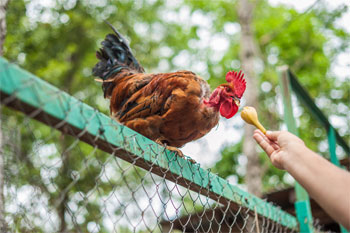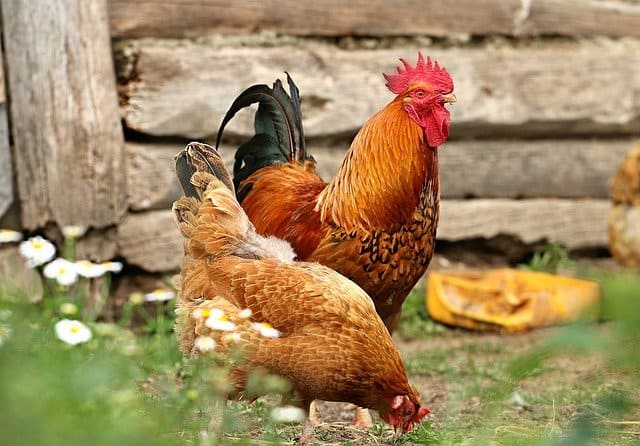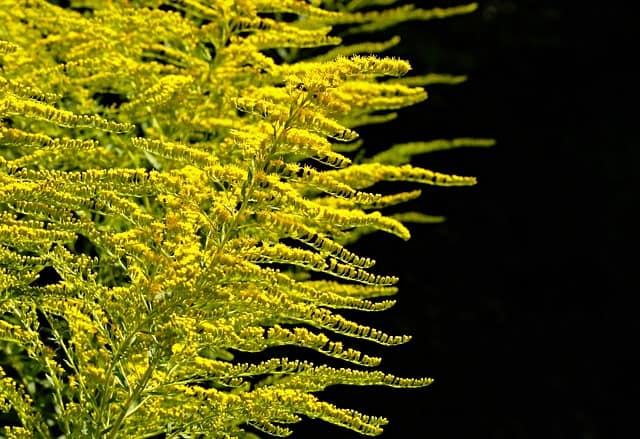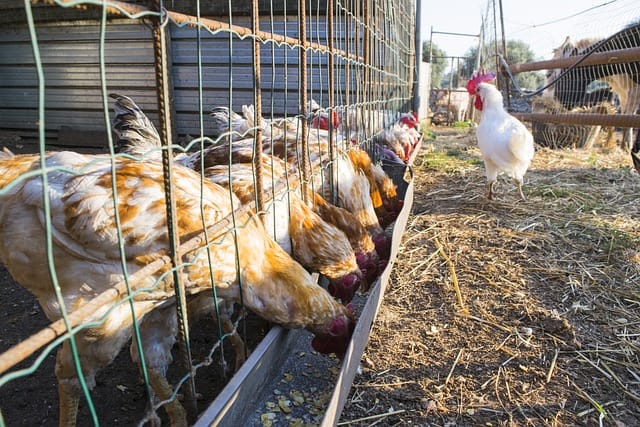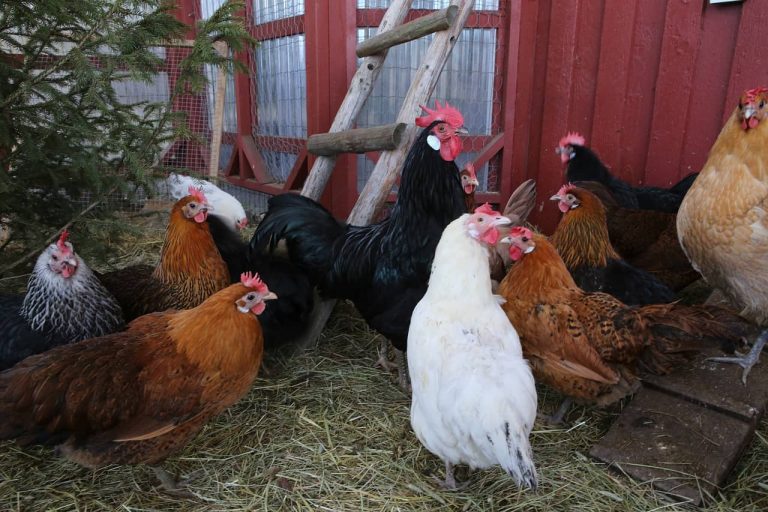Bananas aren’t just sweet; they are also highly nutritious. Many animals love the fruit, but the thought of feeding it to chickens rarely crosses our minds.
Can chicken eat bananas? If so, is it safe for them, and what are the benefits, if any?
These are some of the questions we will be answering in this article. To start with, chickens not only eat bananas; they also crave them.
You can experiment by throwing them banana peels. They will quickly flock around the peel and demolish it in seconds. These birds love fruits a large variety of fruits and vegetables.
We all know the benefits of fruits in boosting immunity, detoxifying the body, and providing numerous minerals essential for healthy growth. Birds, too, get some of these benefits when they eat bananas.
Contents
Is It Safe And Healthy For Chicken To Eat Bananas?
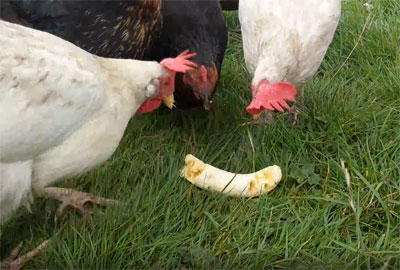
Chicken are omnivorous, meaning they munch pretty much anything edible that comes their way. However, the digestive tract of birds is slightly different from that of other omnivores. So, chicken may not be able to handle too much intake of bananas.
Ripe bananas contain too much sugar, and the bird’s digestive system may not be able to handle it. They can only digest a limited quantity at a time. The rest of the ingested bananas may accumulate in the digestive tract of the bird and become toxic.
Chicken does not know the danger of eating too many bananas. Therefore, it is upon you to regulate the amount you feed them and in what frequency. Let them enjoy the fruit as a treat and not as a meal. This way, the birds can enjoy the sweetness and the nutritional benefits thereof.
Are Banana Peels Safe For Chicken?
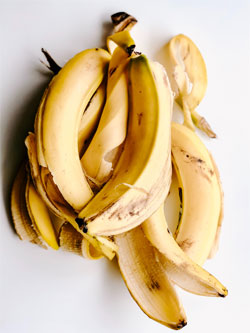
We have focused on the banana flesh. What about the peel? When we eat bananas, we usually unpeel them, eat the flesh and dispose of the peels. We often falter in realizing that what we are throwing away is rich in vitamin B6 and B12, along with fiber.
Furthermore, banana peels are rich in minerals such as potassium and magnesium. Being plant products, substances such as carotenoids and polyphenols are also abundant in them. The question is whether your chicken is safe and if they can also enjoy these benefits.
Eating banana peels is unimaginable in the US, but elsewhere in the world, it’s the norm. Chickens do not discriminate. One serious risk is that bananas are treated with pesticides and insecticides making them dangerous to birds. You may also be at risk, especially if you eat their eggs.
Treat your flock with banana peel only if you are sure the bananas do not treat with medicines. The only way to be sure is to give them the bananas you have produced from your farm. If you don’t recognize the source, please avoid the peels to keep your chicken safe.
You Can Make Banana Peels Safe
It is an excellent thing to dispose of banana peels despite their numerous health benefits because they contain chemicals? I would say no. You can remove the chemicals to make them safe in two ways.
First, you can give the peels a thorough wash similar to how we wash fresh vegetables and fruits before eating them. Use a lot of clean water and no detergents.
Second, boiling can change the chemical properties of pesticides or insecticides, rendering them inert or non-reactive. The high temperatures will also kill harmful organisms and make the peels softer.
The Benefit of Ripe Bananas to Chicken
A ripe banana has yellow peels and whitish flesh, which are called the ovary botanists. Here I will refer to it as flesh. When well ripen, the flesh is soft and highly sugary. Like the peel, it is rich in potassium. A single potassium fruit contains 400 grams. The dose of potassium that can kill a chicken is about 8000 grams.
Therefore, one bird will have to consume at least 20 ripe bananas to die of potassium toxicity. If you are treating your chickens once in a while with ripe bananas, do not worry about them.
Potassium is crucial in improving the health of your chicken. It improves muscle strength making the birds agile, active, and strong. The mineral also reduces stress and boosts mood. Potassium is an electrolyte meaning it helps maintain the fluid content of the chickens’ body and regulates metabolism.
Apart from potassium, the flesh of a ripe banana is rich in plant protein, fiber, vitamins, and a few substances that are also beneficial to chicken. Let’s see why these nutrients are essential:
- Protein: Protein makes animals, birds, fishes, insects, amphibians, etc., grow, develop and reproduce. Bananas are rich in plant protein, making your chicken grow faster, add decent weight, and reproduce optimally.
- Vitamin B6: This vitamin is known to support the function of the nerves and brain. And the nervous system is responsible for controlling all the critical functions of the chicken’s body.
- Vitamin B12: Another B vitamin that is vital for the function of many of the organs in the body of the chicken, including the brain, the spinal cord, the liver, the skin, the gut, and special senses, including the eyes. It also boosts metabolism and energy levels. Your birds will enjoy an optimal level of health.
- Magnesium: Similar to vitamin B12, this mineral is an excellent energy booster. It also promotes the health of the heart. Chicken can be noisy. You can take care of these by treating them with ripe bananas, as magnesium has powerful calming effects. Your birds will also sleep soundly.
The Verdict
Hopefully, the above discussion convinces you that occasionally treating your chickens with ripe bananas isn’t a bad idea. You can give them the peels too, but you must ensure you make them safe by washing or boiling them.
The fruits are rich in nutrients and minerals necessary for normal and optimal growth and, therefore, the chicken’s productivity. Now you know, unlock the full potential of bananas in improving the health of your chickens.

